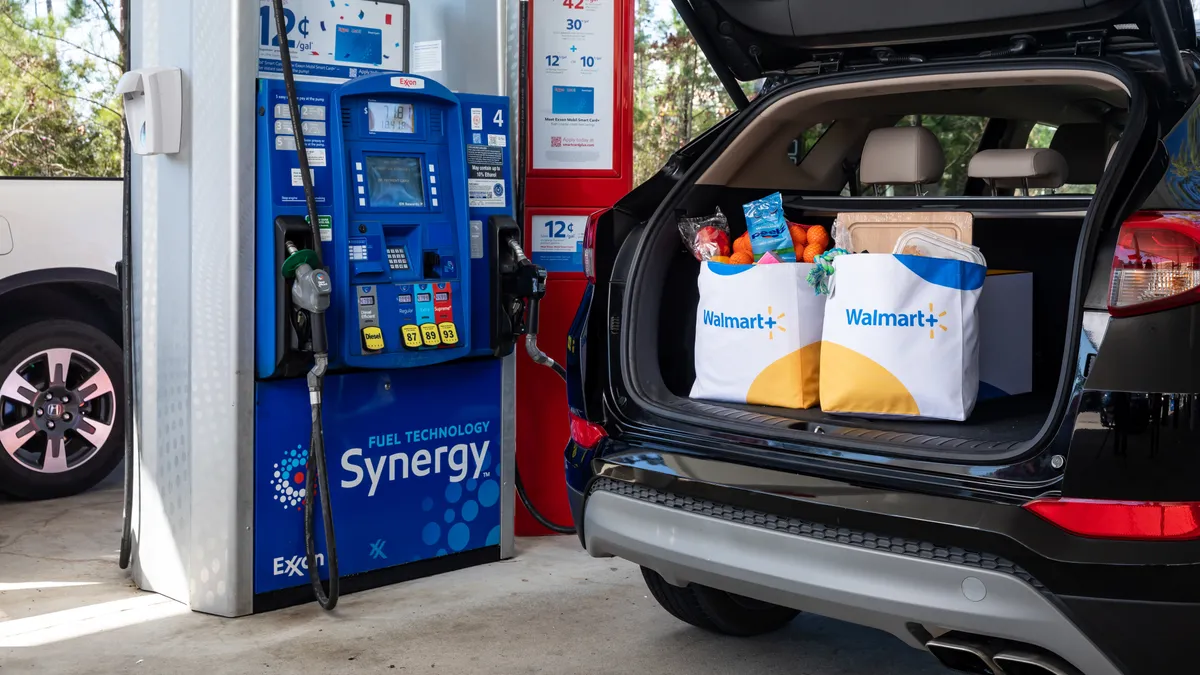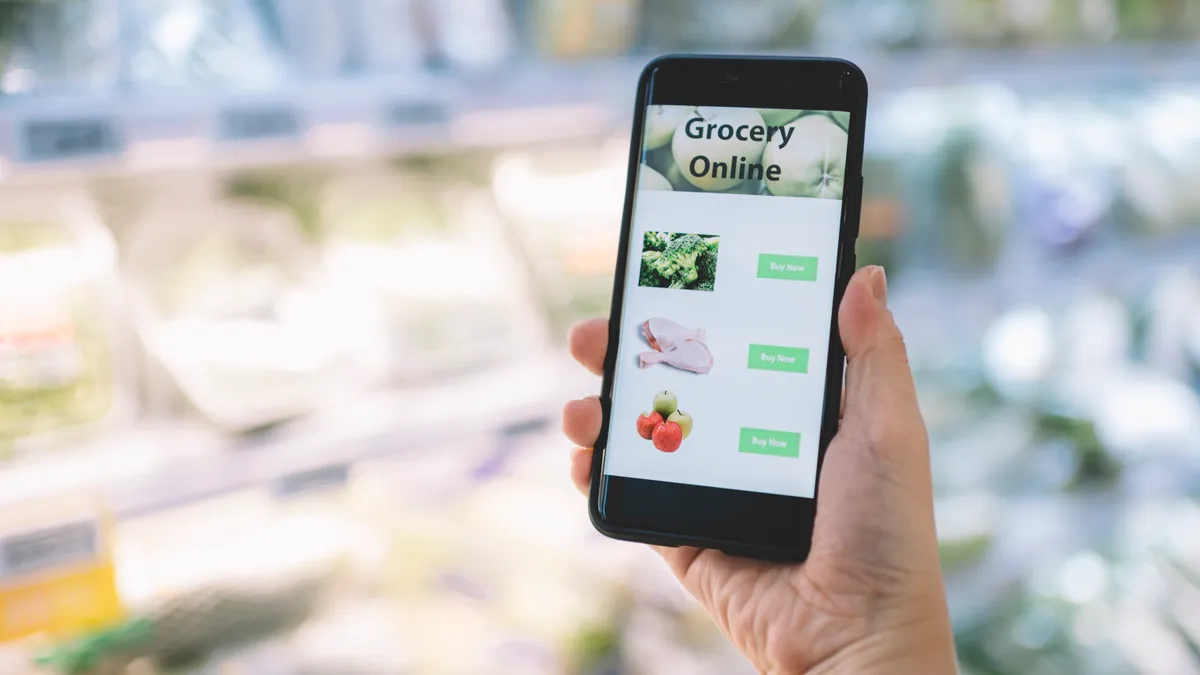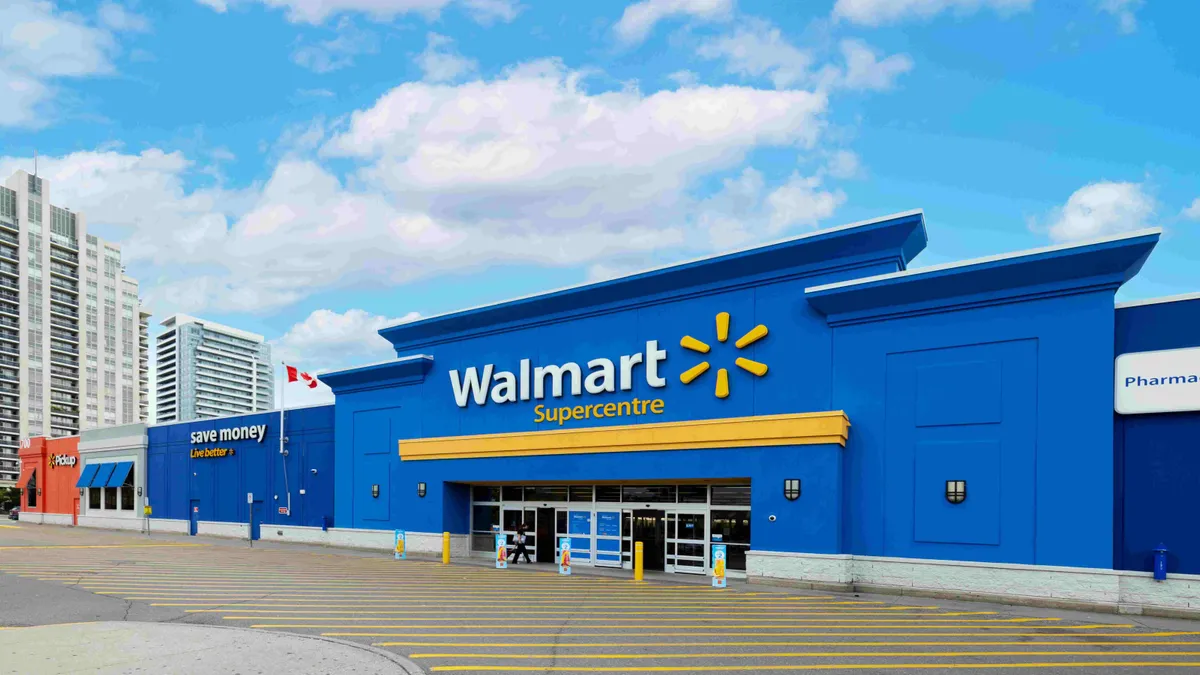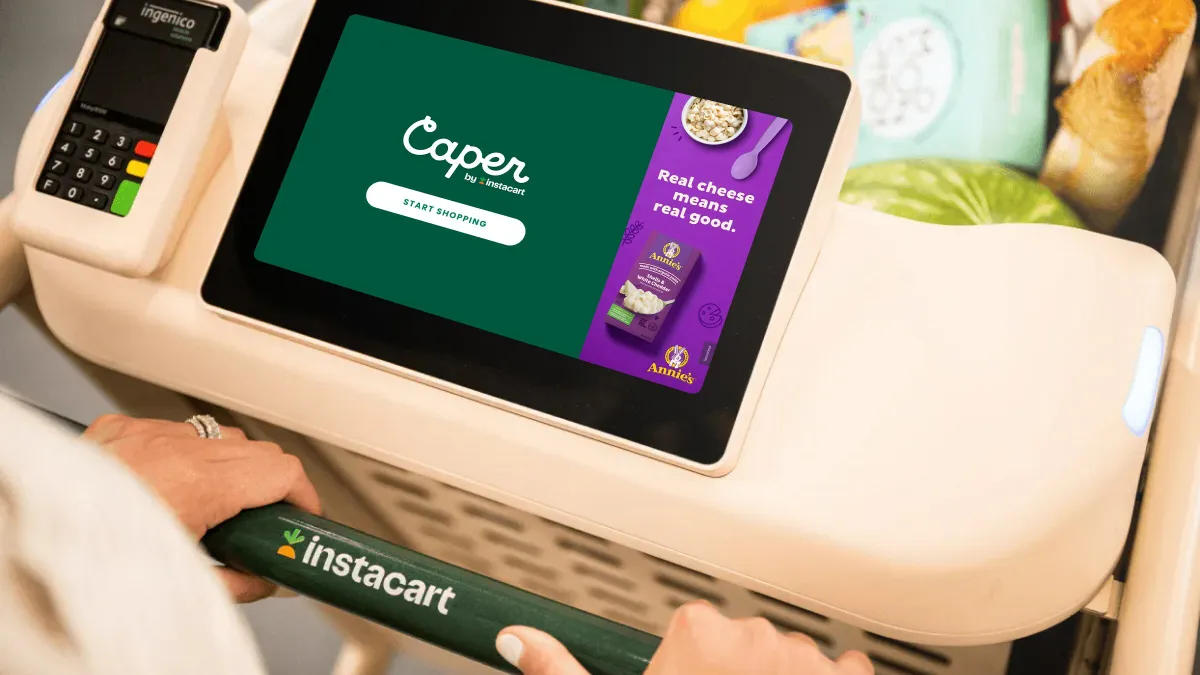The Friday Checkout is a weekly column providing more insight on the news, rounding up the announcements you may have missed and sharing what’s to come.
Amazon’s competition with Walmart in the online grocery sector might be defined in terms of billions of dollars, but for a moment this week, the companies’ rivalry came down to the cost of a delivery.
In a playful yet direct tweet on Tuesday, Walmart made hay over Amazon’s recent decision to start charging Prime members a delivery fee on grocery orders of $150 or less starting Feb. 28, triumphantly pointing out that it requires shoppers to spend only $35 to avoid paying extra to have their groceries brought to their door.
That Fresh $150 free delivery minimum is looking pretty stale right about now. ???????? pic.twitter.com/q8EVmYa6w2
— Walmart (@Walmart) January 31, 2023
“That Fresh $150 free delivery minimum is looking pretty stale right about now,” Walmart broadcast on its main Twitter account, which has 1.3 million followers. The missive included a large graphic highlighting the fact that while it provides delivery at no extra cost, its competitor’s offering is “not free.” (Walmart included the stipulation that it has a $35 minimum order requirement for free delivery and imposes other restrictions, but relegated those details to tiny print at the bottom.)
Walmart’s online poke at Amazon comes as the e-commerce giant looks for ways to cut costs in a bid to strengthen its business amid the tough conditions rattling the economy. The company saw overall sales rise 9% year-over-year in the fourth quarter, but net income tumbled 98% by the same measure.
The ribbing follows a similar effort by Walmart to tout its online grocery service at the expense of its rival. In October 2021, when Amazon-owned Whole Foods began charging a $9.95 service fee on delivery orders across the United States, Walmart took to Twitter to juxtapose its Walmart+ membership service, which includes free delivery, with Amazon’s decision to tack on the fee.
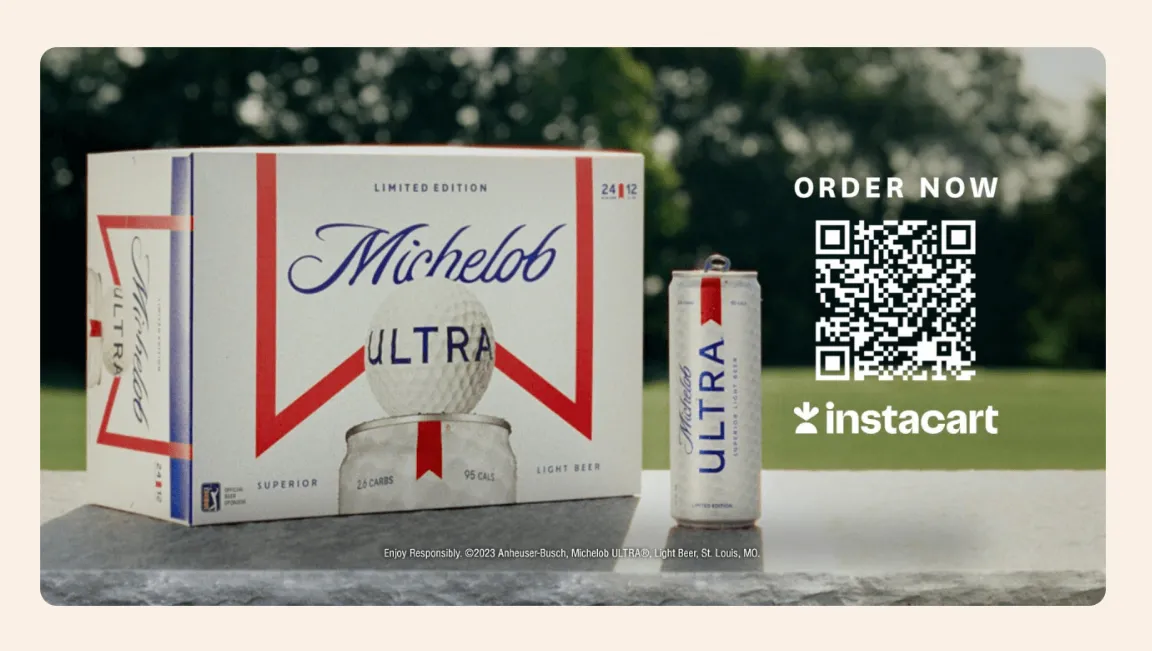
In case you missed it
Instacart and Michelob Ultra unveil Super Bowl marketing collab
The retail solutions provider and beer brand are using TV commercials during the NFL playoffs and shoppable media on Instacart’s app, email marketing, social media and push notifications to showcase limited-edition Michelob Ultra Golf Packs, per a Wednesday press release.
Instacart said in a blog post that Michelob Ultra is the first partner to create a co-marketing campaign with the company that runs during the NFL football playoffs and marks Anheuser-Busch’s first-ever shoppable TV commercials, which are powered by Instacart.
Fun fact: Michelob Ultra was the No. 1 most-purchased beer on Instacart for the last nine months, Instacart Chief Marketing Officer Laura Jones said in the announcement.
Standard AI scoops up Skip
Standard claims the acquisition, which was announced Thursday, will allow it to become the only company to connect self-checkout with AI-powered autonomous checkout in a single integrated experience.
Standard said it will integrate the cloud-based point-of-sale technology from self-checkout solutions vendor Skip with its own ecosystem, which will allow for more streamlined operations and greater control over aspects like price and promotions.
When the deal closes, Standard said it will continue to sell Skip’s tech standalone or bundled with its “Vision OS” offering.
More supplier diversity efforts
Earlier this week, United Natural Foods, Inc. (UNFI) said it doubled its year-over-year spending with diverse-owned suppliers during its 2022 fiscal year. The wholesaler also unveiled an FY 2023 goal of having 3% of its annual product spending support diverse-owned suppliers and noted it is in the “early stages” of a new initiative to create a more inclusive supplier network. Called the ACT initiative, that work has so far led to more than $700 million of diverse supplier purchases across more than 600 suppliers in FY 2022.
Peapod Digital Labs also announced it’s seeking certified, diverse-owned businesses nationwide for its second annual virtual program to connect underrepresented suppliers to merchants with Ahold Delhaize USA banners. Efficient Collaborative Retail Marketing and RangeMe will help host the program’s four virtual events — with one each in April, June, August and October. In a new offering this year, Peapod has teamed with PowerToPitch to offer participating suppliers a free pitch coaching service ahead of the events.
Last year’s program included “hundreds” of participants and resulted in 20 getting onboarded to one or more banners, with “many more” still undergoing the onboarding process, per the announcement.
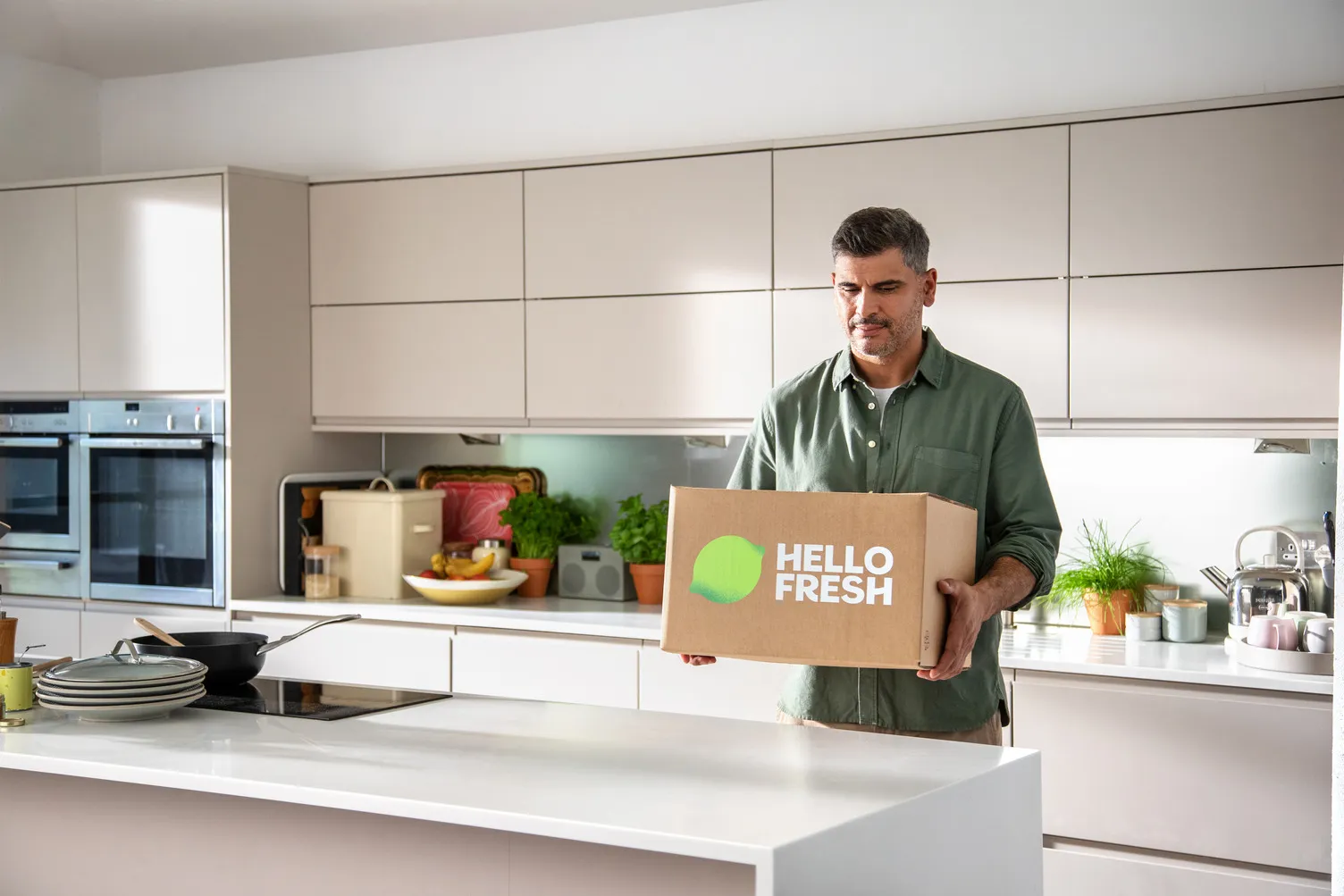
Number of the week: 78%
That’s the percent of HelloFresh’s share of the U.S. meal kit market in 2022, up from the roughly 55% share it had in 2019, according to new findings from Bloomberg Second Measure. Competitor Blue Apron saw its share drop from roughly 20% in 2019 to 6% last year. Sunbasket and Kroger-owned Home Chef saw similar contractions over the same time period as HelloFresh has gobbled up more U.S. share.
The findings reflect sales through each company's own website, but not sales through other channels.
Customer retention continues to be a challenge for meal kit makers. Among shopper cohorts who made their initial purchase in January 2022, 69% of Blue Apron customers and 57% of HelloFresh customers placed an order in the following month, Bloomberg Second Measure noted. Eleven months later, 15% and 9%, respectively, of that cohort were still customers of Blue Apron and HelloFresh.


